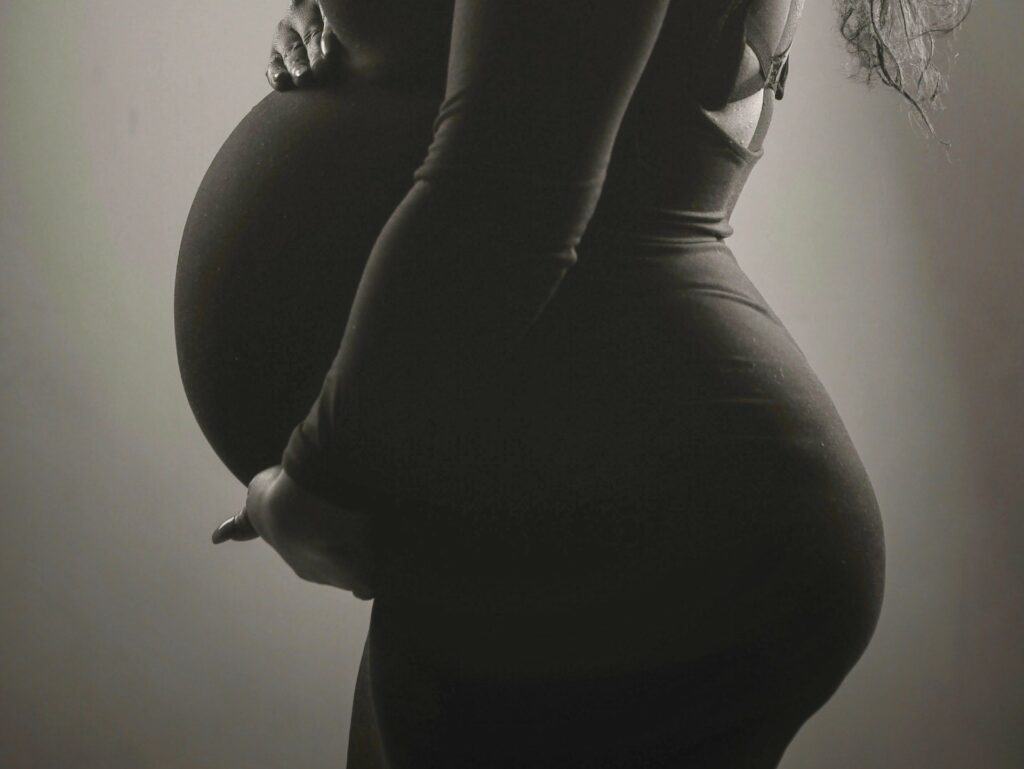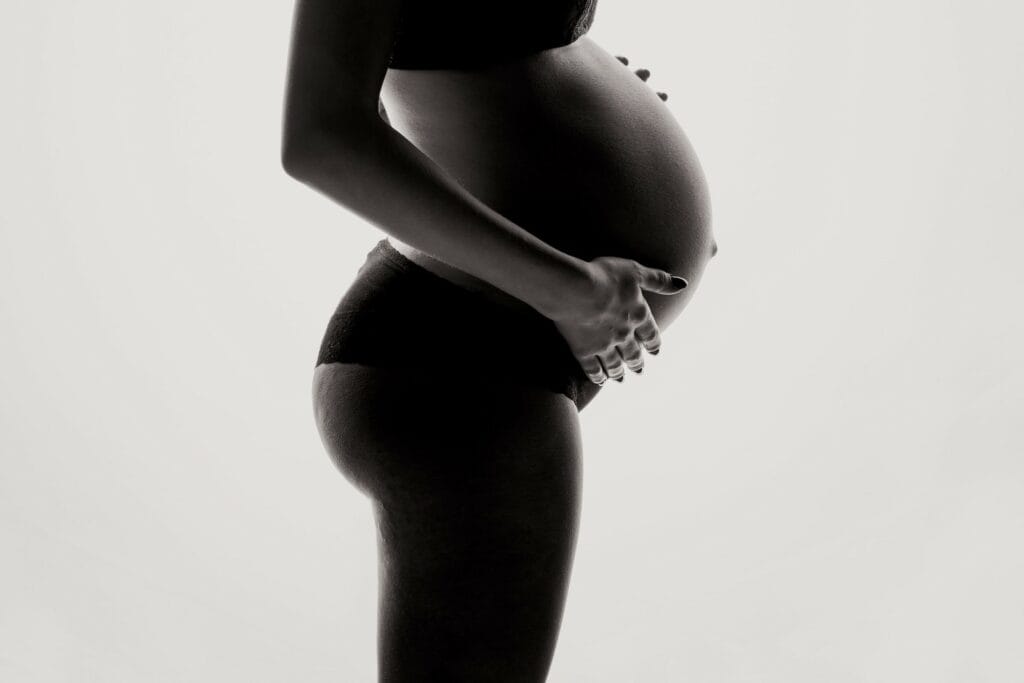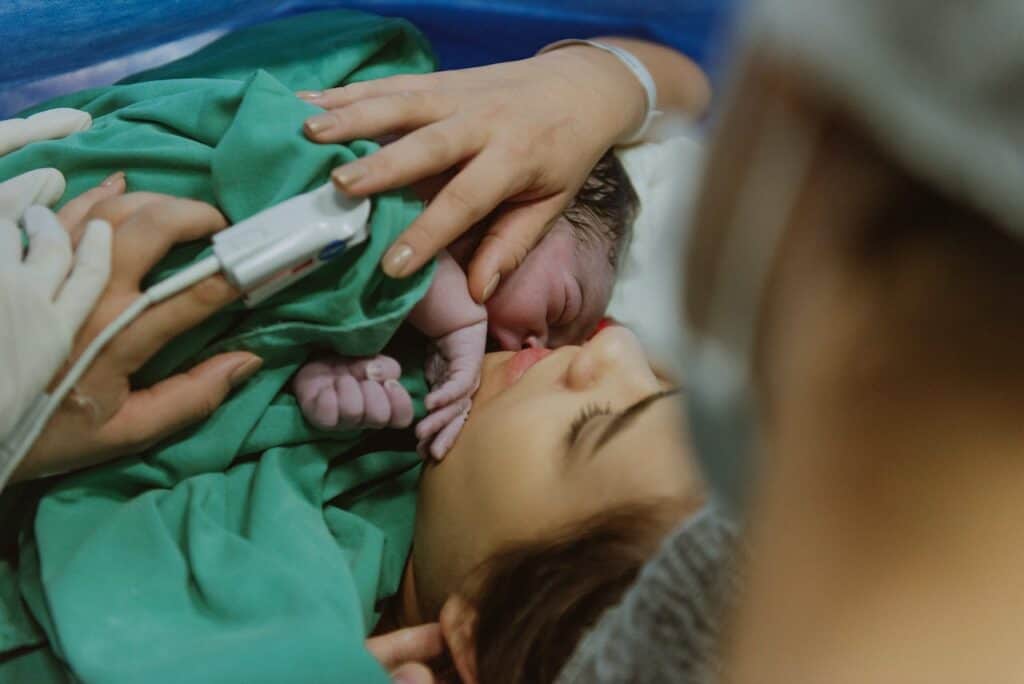Pregnancy is a beautiful and exciting time for women, but it also comes with many physical changes. One of the most noticeable changes is the widening of the hips. While it is a well-known fact that hips widen during pregnancy, many women are unsure about when this happens and how it affects their bodies.
Understanding when do your hips widen during pregnancy is essential for all expecting mothers. During pregnancy, the body releases a hormone called relaxin, which helps to relax the ligaments and joints in the pelvis. This hormone prepares the body for childbirth by allowing the baby to pass through the birth canal more easily. As a result, the hips gradually widen to accommodate the growing fetus.
Hips Widening During Pregnancy can have significant effects on the body. While it is a natural and necessary process, it can cause discomfort and pain for some women. The increased weight and pressure on the hips and lower back can lead to back pain, hip pain, and sciatica. However, there are ways to manage these changes and alleviate discomfort, which will be discussed in this article.
Key Takeaways
- Hips widen during pregnancy due to the release of the hormone relaxin, which helps prepare the body for childbirth.
- This process can cause discomfort and pain for some women, but there are ways to manage these changes.
- Understanding the basics of hips widening during pregnancy is essential for all expecting mothers.
Understanding the Basics

Pregnancy and Body Changes
Pregnancy is a unique experience that brings about several changes in a woman’s body. One of the most noticeable changes is the widening of the hips. This happens to accommodate the growing fetus and prepare for childbirth.
As the baby grows, the uterus expands and puts pressure on the pelvic bones. This, in turn, triggers the release of hormones that help to loosen the joints and ligaments in the pelvic area. This allows the hips to widen and make more room for the baby to pass through during delivery.
Role of Hormones
The widening of the hips during pregnancy is mainly due to the hormone relaxin. Relaxin is produced by the ovaries and placenta during pregnancy and is responsible for making the pelvic ligaments and joints more flexible. This helps to accommodate the growing fetus and prepare for childbirth.
Progesterone is another hormone that plays a role in hip widening during pregnancy. Progesterone levels increase during pregnancy and cause the ligaments and joints in the pelvic area to relax. This allows the hips to widen and make more room for the baby to pass through during delivery.
In conclusion, the widening of the hips during pregnancy is a natural and necessary process that helps to accommodate the growing fetus and prepare for childbirth. Hormonal changes, especially the release of relaxin and increased levels of progesterone, play a crucial role in this process.
Hips Widening During Pregnancy
Why Hips Widen

When and How Hips Widen
During pregnancy, a woman’s body undergoes various changes to prepare for childbirth. One of these changes is the widening of the hips. The pelvic bones, which are located in the hips, are designed to expand during childbirth to allow the baby to pass through the birth canal. The hormone relaxin is responsible for loosening the ligaments and joints in the pelvic area, allowing the bones to shift and widen.
The widening of the hips typically occurs in the second trimester of pregnancy. However, every woman is different, and some may experience hip widening earlier or later in their pregnancy. The amount of widening can also vary from woman to woman. On average, the hips expand by 1-2 inches during pregnancy.
The widening of the hips can cause discomfort and pain in some women. This is because the ligaments and joints in the pelvic area become more flexible, which can lead to instability and pain. To alleviate this discomfort, women can try exercises that strengthen the pelvic muscles, such as Kegels.
In conclusion, hip widening is a natural and necessary process during pregnancy. It is caused by the hormone relaxin, which loosens the ligaments and joints in the pelvic area. The widening of the hips typically occurs in the second trimester of pregnancy and can cause discomfort in some women. However, exercises that strengthen the pelvic muscles can help alleviate this discomfort.
Effects on the Body
Physical Changes
During pregnancy, a woman’s body undergoes many changes, including a widening of the hips. This is a natural process that occurs as the body prepares for childbirth. The hormone relaxin is released, which causes the ligaments and joints in the pelvis to loosen, allowing the baby to pass through the birth canal.
As the hips widen, a woman may notice an increase in her waistline and a shift in her center of gravity. This can lead to changes in posture and balance, which may cause discomfort or even pain. Additionally, weight gain during pregnancy can put extra pressure on the hips and lower back, exacerbating any existing pain or discomfort.
Pain and Discomfort
Hip pain, pelvic pain, and low back pain are common complaints during pregnancy, especially in the later stages. Pelvic girdle pain (PGP) is a condition that affects up to one in five pregnant women and can cause significant discomfort. PGP is characterized by pain in the pelvic area, hips, and lower back, and can make it difficult to walk, stand, or sit for long periods.
Stretch marks and loose skin are also common side effects of pregnancy. While these changes do not directly affect the hips, they can contribute to overall discomfort and self-consciousness.
In conclusion, while the widening of the hips during pregnancy is a natural and necessary process, it can cause discomfort and pain for some women. It is important for pregnant women to listen to their bodies and seek medical advice if they are experiencing any significant pain or discomfort.
Managing the Changes
During pregnancy, the body goes through numerous changes, including the widening of the hips. These changes can be uncomfortable and challenging to manage, but there are ways to make the transition easier. Here are some tips on how to manage the changes that come with hip widening during pregnancy.

Exercise and Posture
Regular exercise during pregnancy can help improve posture and reduce discomfort. Walking is a great low-impact exercise that can be done throughout pregnancy. It helps strengthen the muscles in the legs and hips, which can help support the body as it changes.
In addition to exercise, good posture can also help manage the changes that come with hip widening. Keeping the shoulders back, chest lifted, and pelvis tucked can help reduce strain on the lower back and hips.
Diet and Clothing
Maintaining a healthy diet during pregnancy can also help manage hip widening. Eating a balanced diet that includes plenty of fruits, vegetables, and whole grains can help keep weight gain in check, which can reduce the strain on the hips.
Wearing comfortable clothing that supports the hips can also help manage the changes. Maternity clothes that are designed to support the hips and belly can be helpful. Additionally, using a pregnancy pillow while sleeping can help support the hips and reduce discomfort.
Overall, managing the changes that come with hip widening during pregnancy requires a combination of exercise, good posture, a healthy diet, and comfortable clothing. By taking care of the body during this time, women can reduce discomfort and prepare for the birth of their baby.
Post-Pregnancy

Returning to Pre-Pregnancy Size
After giving birth, many women are eager to return to their pre-pregnancy size. However, it’s important to remember that the body needs time to heal and recover from childbirth. Women should not rush the process and should instead focus on establishing healthy habits, such as eating a balanced diet and engaging in regular exercise.
It’s also important to note that every woman’s body is different and there is no one-size-fits-all approach to returning to pre-pregnancy size. Some women may find that their bodies naturally return to their pre-pregnancy size, while others may require more time and effort.
Postpartum Body Changes
During pregnancy, the body undergoes many changes to accommodate the growing baby. After giving birth, the body will continue to undergo changes as it returns to its pre-pregnancy state. Some common postpartum body changes include:
- Weight loss: Women can expect to lose some weight after giving birth, but it’s important to do so in a healthy and sustainable way.
- Posture: Pregnancy can cause changes in posture, and it’s important to work on improving posture after giving birth to prevent back pain and other issues.
- Pelvic bone: The pelvic bone may have widened during pregnancy to accommodate the baby, and it may take some time for it to return to its pre-pregnancy size.
- Pelvic floor: The pelvic floor muscles may have weakened during pregnancy and childbirth, which can lead to issues such as urinary incontinence. Women can work on strengthening these muscles through exercises such as Kegels.
Overall, it’s important for women to be patient and kind to themselves as they navigate the postpartum period. With time and effort, it is possible to return to a healthy and happy state.
Frequently Asked Questions
At what stage of pregnancy do hips begin to widen?
Hips can start to widen during the second trimester of pregnancy, usually around 22 weeks. This is due to the hormone relaxin, which helps to loosen the ligaments and joints in the pelvis, allowing the baby to pass through the birth canal during delivery.
Is it normal for hips to hurt during pregnancy?
Yes, it is common for women to experience hip pain during pregnancy. As the hips widen to prepare for childbirth, the added pressure can cause discomfort. It is important to talk to a healthcare provider if the pain is severe or affects daily activities.
Can hips go back to normal after pregnancy?
While the hips may not return to their pre-pregnancy size, they can still decrease in size after delivery. However, this process may take several months and varies from person to person.
What are the signs that your hips are widening during pregnancy?
Some signs that your hips are widening during pregnancy include a noticeable increase in hip size, difficulty fitting into pre-pregnancy pants, and hip pain or discomfort.
When does the pelvis widen during pregnancy?
The pelvis can start to widen during the second trimester of pregnancy, usually around 22 weeks. This process can continue throughout pregnancy and can aid in the birthing process.
Will pregnancy cause permanent widening of hips?
Pregnancy can cause permanent changes to the body, including the hips. While the hips may not return to their pre-pregnancy size, they can still decrease in size after delivery. However, it is important to remember that every person’s body is different and will respond differently to pregnancy.
Related Posts:
- What To Wear After Delivery 2?
- How to Clean Out Your Unborn Babys’ System?
- How To Dress During Pregnancy Without Maternity Clothes?

Iesha is a loving mother of 2 beautiful children. She’s an active parent who enjoys indoor and outdoor adventures with her family. Her mission is to share practical and realistic parenting advice to help the parenting community becoming stronger.
